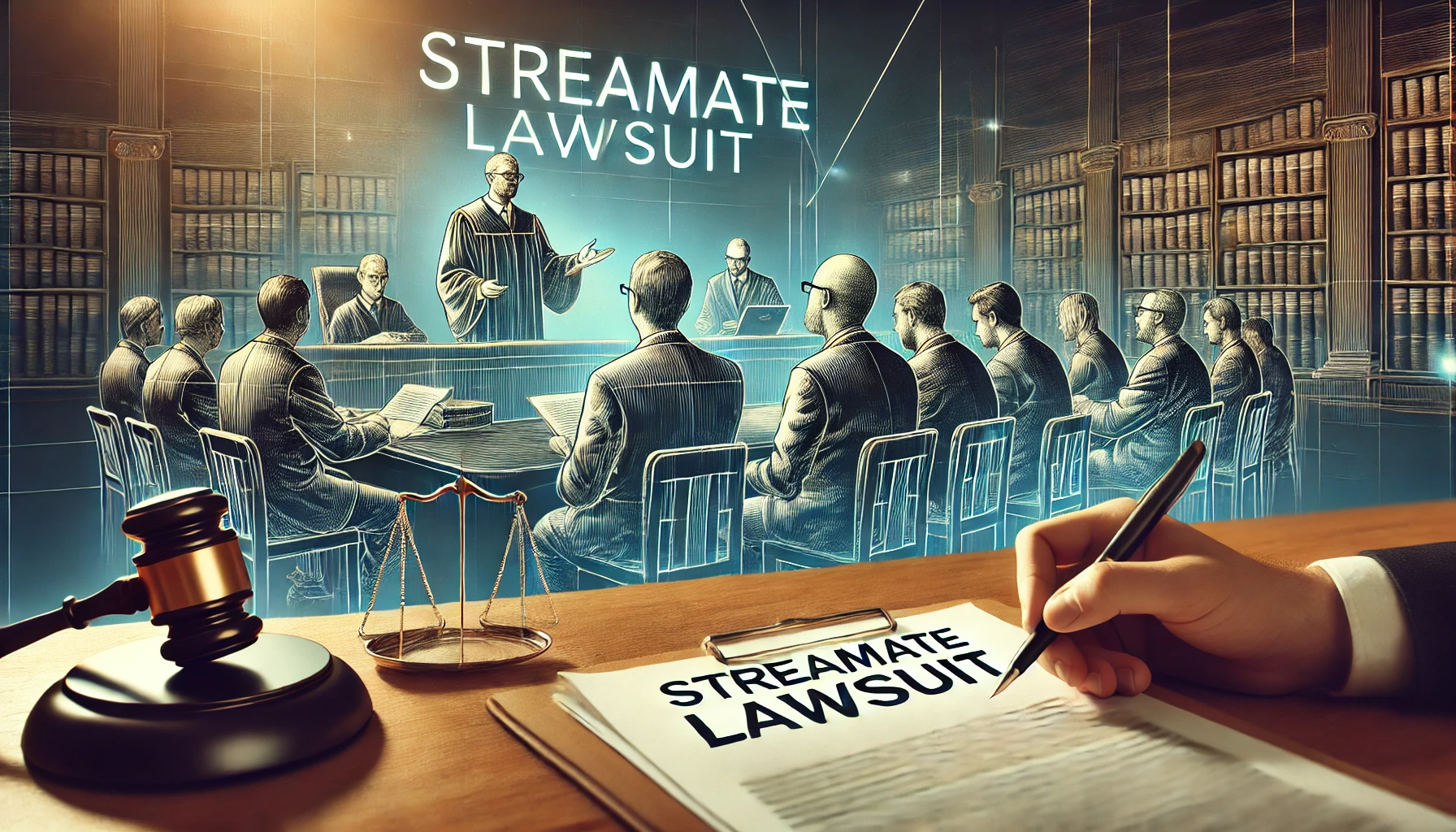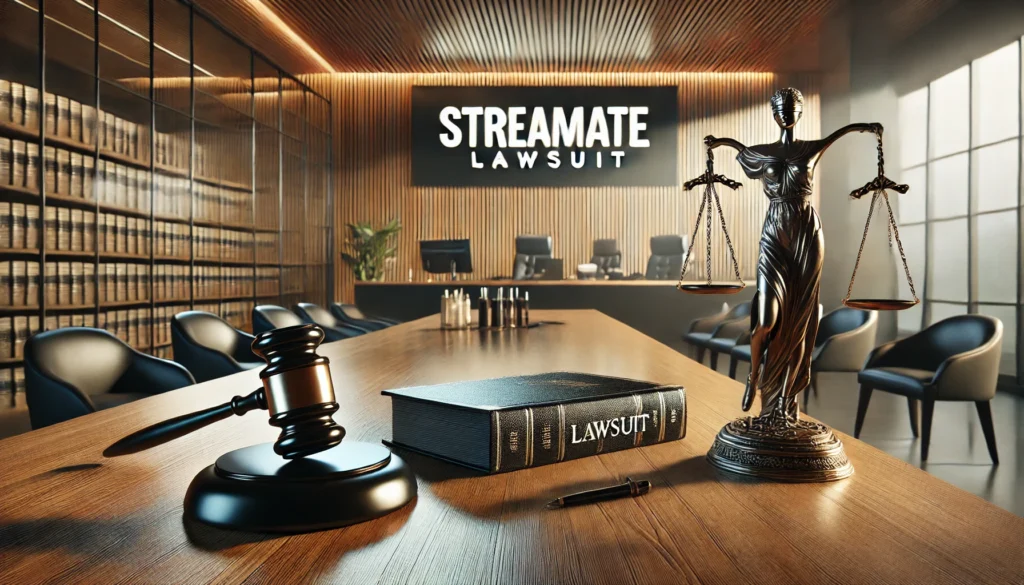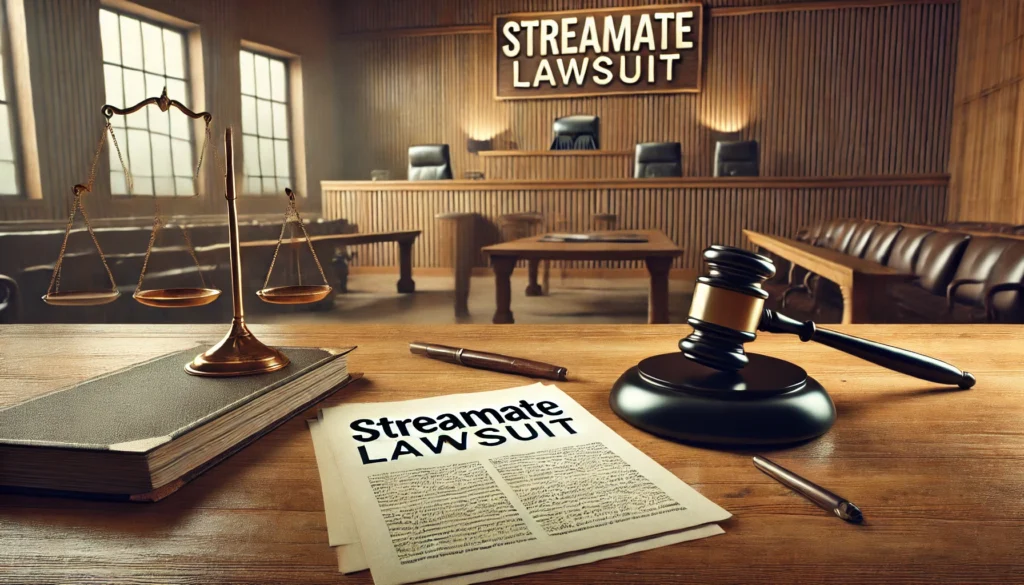Streamate Lawsuit: A Closer Look at Its Legal and Industry Impact

Streamate is a well-known platform in the adult entertainment industry, primarily offering webcam services where performers interact with viewers through live video streams. While its innovative business model has made it a leader in the industry, the Streamate lawsuit history highlights several legal challenges. These lawsuits offer important insights into both the technology behind such platforms and the treatment of workers within the gig economy. In this article, we’ll explore two significant legal cases involving Streamate: a patent infringement lawsuit filed in 2014 and a wage and hour class action lawsuit in 2023. We’ll break down the details of these cases, their implications, and the lessons they offer.
What is Streamate?
Streamate operates as a live streaming platform, connecting webcam performers (independent contractors) with paying viewers. The platform allows performers to broadcast themselves in real-time, providing an interactive experience where viewers can engage with performers during their live streams. Streamate earns revenue from these streams, but its business model relies on performers maintaining their status as independent contractors rather than employees.
Given the nature of Streamate’s operations, it faces various challenges in complying with legal requirements surrounding intellectual property, labor rights, and fair compensation. Understanding these issues is essential to understanding the lawsuits Streamate has faced.
Overview of Streamate’s Legal Challenges
There have been two major lawsuits that have drawn attention to Streamate’s business practices. These lawsuits address two very different areas of law: one involves technology and intellectual property, while the other centers on labor rights. The two key cases are:
- Patent Infringement Lawsuit (2014)
- Wage and Hour Class Action Lawsuit (2023)
Each of these cases has highlighted different aspects of Streamate’s operations and provides valuable insights into the challenges companies in this space face.
Understanding the Streamate Lawsuit: Key Issues and Implications
Streamate, a prominent platform in the adult entertainment industry, has faced legal challenges that spotlight critical issues in technology and labor rights. Two notable lawsuits highlight these concerns.
The 2014 patent infringement lawsuit accused Streamate of violating SurferNETWORK’s patented streaming technologies. This case emphasized the complexities of intellectual property laws in tech-driven businesses, urging platforms to carefully evaluate and protect their technological innovations.
The 2023 wage and hour class action lawsuit, filed by webcam performers, argued that Streamate misclassified them as independent contractors rather than employees. This misclassification allegedly denied performers key labor protections such as minimum wage, overtime pay, and benefits. The case underscores the ongoing debate over worker rights in the gig economy and could set significant legal precedents for similar industries.
These lawsuits highlight the importance of legal compliance in fast-evolving sectors and raise questions about balancing innovation, labor rights, and business practices.
The Patent Infringement Lawsuit (2014)
In 2014, Streamate found itself embroiled in a legal battle with SurferNETWORK, a company that owned several patents related to streaming technologies. SurferNETWORK accused Streamate of using their patented technology without permission, alleging that the platform violated specific methods of delivering video content.
What Was at Stake?
The case revolved around the intellectual property rights that govern the technology behind online video streaming. SurferNETWORK claimed that Streamate used its patented methods for live video delivery, which the company had developed and patented years earlier. The lawsuit emphasized the challenges of intellectual property protection in the fast-evolving tech industry, especially for companies relying on streaming technologies.
The Outcome:
Streamate defended itself by arguing that the patents held by SurferNETWORK were either invalid or not relevant to the technology they used. The case was eventually settled out of court, but it highlighted the importance of understanding patent law and the need for companies in the tech industry to carefully navigate potential patent infringements.
This lawsuit had broader implications for the tech sector, showing that even successful platforms like Streamate could be vulnerable to patent disputes and the need to protect their technological innovations.
The Wage and Hour Class Action Lawsuit (2023)
The second significant lawsuit faced by Streamate involved a class action brought by webcam performers in 2023. The lawsuit, filed in the U.S. District Court for the District of New Jersey, claimed that Streamate misclassified performers as independent contractors instead of employees, thus denying them access to essential labor rights, such as minimum wage, overtime pay, and employee benefits.
Allegations and Claims:
Performers argued that their role in the business—streaming live content for viewers—was fundamentally similar to the work of employees rather than independent contractors. They claimed that Streamate controlled many aspects of their work, including the platform they used to broadcast, which is a key feature of an employee-employer relationship.
The lawsuit accused Streamate of exploiting performers by failing to provide them with proper compensation, including minimum wage and overtime pay, which employees are legally entitled to under both federal and state labor laws.
Streamate’s Defense:
Streamate, on the other hand, argued that its performers were independent contractors who worked on their own terms. The company pointed to the flexibility that performers had in choosing when and how often they worked as evidence that the contractor classification was appropriate. They maintained that this classification was in line with industry standards and that performers voluntarily entered into these arrangements.
Current Status:
As of now, the case is still ongoing, and the outcome could have a significant impact on how gig economy businesses classify their workers. If the plaintiffs succeed, it could lead to significant changes in how platforms like Streamate are required to treat their workers, including offering better wages and benefits.
Broader Implications of the Lawsuits
These two lawsuits highlight the broader issues surrounding both intellectual property rights and labor rights in the gig economy.
For the Adult Entertainment Industry:
Streamate is not the only platform facing scrutiny. Other adult entertainment platforms, like OnlyFans and Chaturbate, may face similar legal challenges regarding the treatment of performers and the technology they use. The outcomes of these lawsuits could lead to industry-wide changes that improve conditions for performers.
For Technology Companies:
The patent infringement lawsuit emphasizes the importance of securing intellectual property rights. As streaming technology continues to evolve, tech companies need to be vigilant about patent disputes, as even small innovations can be protected by patents.
For Workers in the Gig Economy:
The wage and hour lawsuit reflects a larger issue facing workers across industries—whether they should be classified as independent contractors or employees. A ruling in favor of the plaintiffs could set a precedent for other gig economy platforms, ensuring that workers are entitled to the same rights and benefits as full-time employees.
Key Lessons Learned from the Streamate Lawsuits
Both lawsuits offer valuable lessons for other companies in the tech and gig economy sectors.
- Legal Compliance is Essential: Companies must be aware of both intellectual property laws and labor rights. Proper classification of workers and adherence to patent laws is crucial to avoid legal disputes.
- The Importance of Fair Treatment for Workers: As the gig economy grows, the debate over independent contractor status versus employee status will continue to be relevant. Companies that treat their workers fairly and provide the appropriate benefits will likely be better positioned in the long term.
- Technology Companies Must Protect Their Innovations: Patent infringement cases are common in tech industries, and companies must ensure they understand their legal rights to protect their technologies.
Conclusion
The Streamate lawsuit serves as an important reminder of the complexities businesses face as they navigate technological innovation and labor rights. The 2014 patent infringement case underscored the challenges of protecting streaming technologies, while the 2023 wage and hour class action lawsuit highlighted the ongoing debate over worker classification in the gig economy.
As these cases continue to unfold, they may lead to significant changes in both the adult entertainment industry and the broader gig economy. Streamate’s lawsuits are just one example of how companies must balance legal compliance with their business practices, ultimately shaping the future of work and technology.
FAQs
What is Streamate’s business model?
Streamate operates as a live streaming platform where webcam performers, classified as independent contractors, earn revenue by interacting with paying viewers.
What was the 2014 patent infringement lawsuit about?
The lawsuit involved Streamate being accused of using SurferNETWORK’s patented streaming technologies without permission, raising concerns about intellectual property rights in the tech industry.
How does the 2023 wage and hour class action lawsuit affect performers?
The lawsuit argues that Streamate misclassified webcam performers as independent contractors, denying them labor rights like minimum wage, overtime pay, and benefits.
What is Streamate’s defense in the labor lawsuit?
Streamate contends that its performers are independent contractors, emphasizing their flexibility in choosing work hours and conditions, which fits industry standards.
How might these lawsuits impact the broader industry?
These lawsuits could set legal precedents that influence how other platforms in the adult entertainment and gig economy industries classify workers and handle intellectual property issues.
Recommended Article:
Tennessee Mesothelioma Lawyer Vimeo: Your Guide to Legal Support and Compensation
EMP Legal Group: Understanding Your Rights as a Consumer
Jayoma Law Firm Reviews: A Comprehensive Insight into Client Feedback
Spokane Mesothelioma Lawyer Vimeo: Your Guide to Legal Support














































































































































































































































































































































































































































































































































































